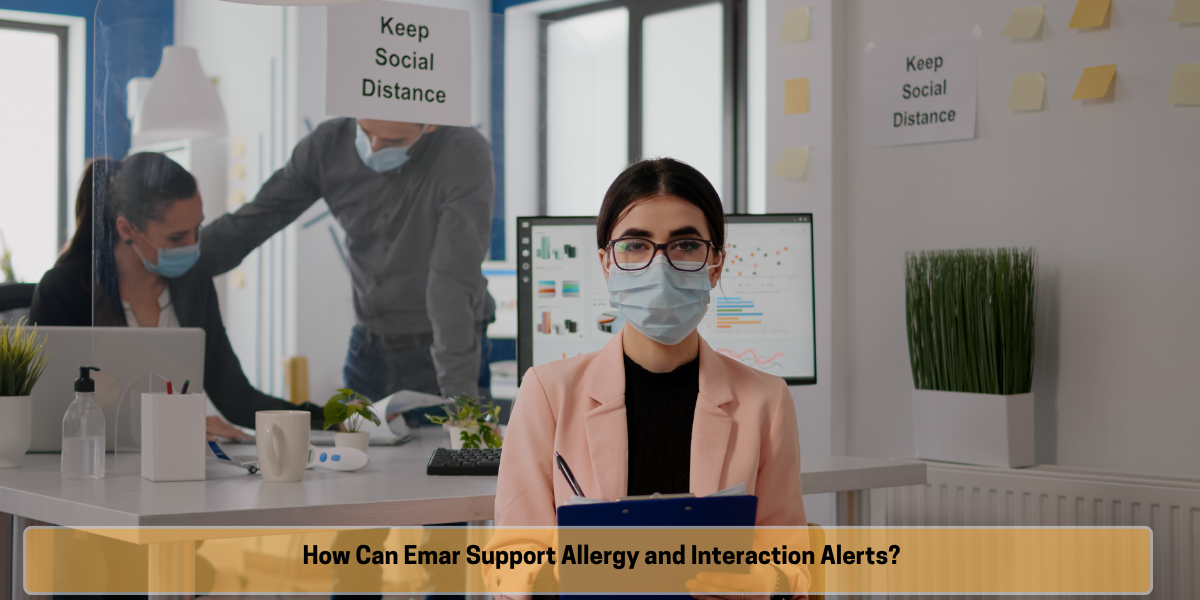The responsibilities of nurses and medical staff extend far beyond medication administration. One of their most vital duties lies in safeguarding patient safety. A crucial part of this responsibility involves the careful management of medications, particularly when patients face risks from allergies or potential drug interactions. These risks, if unaddressed, can lead to severe consequences, especially for patients on complex medication regimens.
Electronic Medication Administration Records (eMAR) systems have become indispensable tools for healthcare professionals. By integrating technology into daily practice, these systems help mitigate medication-related risks and improve patient outcomes. Here, we explore how eMAR systems support healthcare providers through real-time allergy alerts, drug interaction warnings, and personalised medication management.
Real-time Allergy Alerts
One of the key strengths of eMAR systems lies in their ability to generate real-time allergy alerts. These systems embed allergy data directly into each patient’s medication profile. When a new medication is prescribed or prepared for administration, the system immediately checks it against the patient’s known allergies.
This instant feedback helps prevent potentially harmful reactions. For instance, if a patient has a penicillin allergy and a care provider enters a prescription containing that substance, the system will alert the staff without delay. As a result, the care team can choose an alternative or consult a prescriber to revise the treatment plan. This contrasts with traditional paper-based MAR systems, which rely heavily on human memory and manual checks, often increasing the risk of errors.
Drug Interaction Warnings
Patients who take multiple medications face a higher risk of experiencing drug interactions. These interactions may lead to reduced efficacy, unexpected side effects, or life-threatening complications. eMAR systems help manage these complexities by automatically checking each new prescription against a patient’s existing medication list.
Comprehensive Cross-referencing of Patient Records
eMAR systems store and maintain detailed patient records, including allergy histories, previous reactions, and current prescriptions. When a new medication is entered, the system cross-references it with this stored information. Alerts then appear not only for direct allergies but also for contraindications based on the patient’s medical history.
This comprehensive cross-referencing ensures a more informed decision-making process. Staff benefit from a full, up-to-date view of each patient’s condition and treatment record. This approach greatly reduces the chances of oversight and promotes more accurate and individualised medication management. When care teams rely on the system’s holistic patient profiles, they can deliver safer and more effective care.
Beyond standard allergy and drug interaction warnings, eMAR systems also allow for custom alerts tailored to individual patient needs. These may include sensitivities to substances such as lactose, gluten, or specific excipients. Once such preferences are added to the patient profile, the system automatically flags medications that contain problematic ingredients.
These tailored alerts prove particularly valuable in care settings where patients may not be able to communicate their needs clearly. By supporting a personalised approach to care, eMAR systems help ensure that treatment plans respect each patient’s unique sensitivities. The result is a higher level of safety and improved patient satisfaction.







